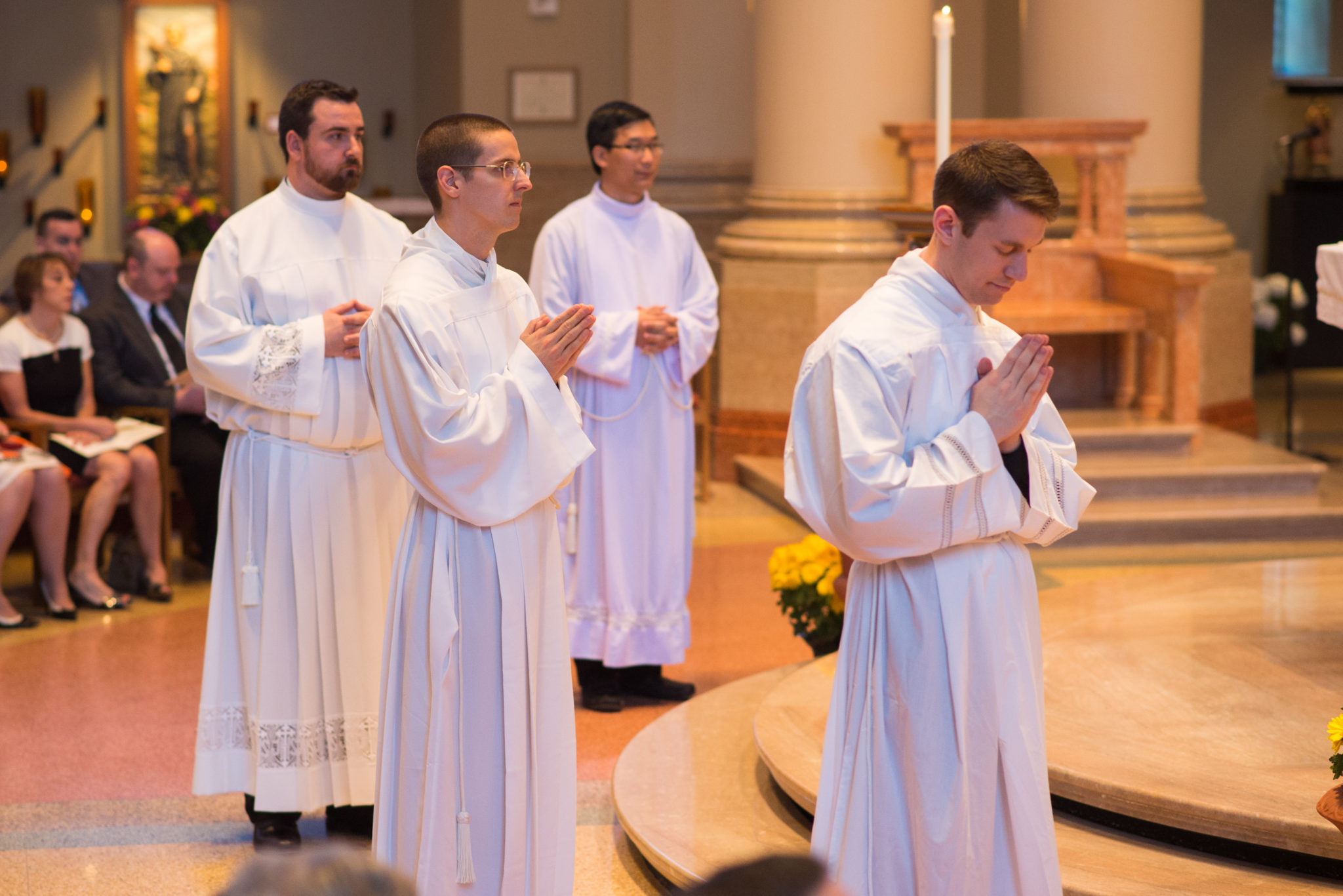One of the great delights of my childhood and youth was our family tradition of taking a summer camping trip. There was something adventurous about spending time in the “Great Outdoors,” and it gave me a heart-felt appreciation for the beauty of nature. Camping also provided one of my earliest lessons about conservation of the environment, as my parents always made sure that we cared for our campsite in such a way that we left it in better condition than we found it.

Four seminarians process in shortly before being ordained to the Order of Deacons by Bishop Jeff Haines at the Cathedral of St. John the Evangelist. Deacons (from left) Aaron Laskiewicz, Andrew Infanger, Vincent Van Pham, C.S.C., and William Arnold will continue their formation at St. Francis de Sales Seminary and Sacred Heart Seminary and School of Theology as they look forward to their ordination as priests in 2018.
These memories of camping and conservation came to mind last week in conjunction with the celebration of Earth Day, April 22. Earth Day has been a national day to commemorate care for the environment since 1970. It was a response to a growing concern about the proliferation of air and water pollution. Our very own state of Wisconsin was at the forefront of the promotion this event, as its founder was one of our senators, Gaylord Nelson.
This year, the Social Justice Committee of the Council of Priests of the Archdiocese of Milwaukee requested that a special effort be made to acknowledge the celebration of Earth Day, and, in a particular way, strive to emphasize its important purpose by sharing the message of the Papal Encyclical of Pope Francis entitled Laudato Si’ – On Care for our Common Home.
Laudato Si’ was promulgated in 2015, and its title comes from the invocation of the Canticle of Creation composed by Saint Francis of Assisi, “Praise be to you, my Lord.” As did his namesake, Pope Francis wrote this encyclical letter to highlight the understanding of creation as a holy and precious gift from God to be reverenced by all people. In fact, our Holy Father goes so far as to mandate that we all have a vocation to be protectors of the earth. He maintains that the earth is the very handiwork of God, and thus the duty of its preservation is essential to a life of virtue.
Of course, Pope Francis is not original in making mention of our obligation to care for the earth. The call to exercise stewardship for the earth is a prominent theme in the story of creation in the first chapter of the Book of Genesis. In addition to this biblical admonition, there is a litany of saints who profess the belief that safeguarding the world is a way to honor its Creator. For example, Saint John of Damascus once wrote, “The whole earth is a living icon of the face of God.”
What is new about the teaching of Pope Francis in Laudato Si’ are some critical observations which he makes in assessing the treatment of our earth in modern times. He is especially concerned about the contemporary trend which allows economic forces to promote the acceptance of almost every technological, scientific or industrial advancement, before consideration is given as to how this will affect the environment and how this might result in negative consequences for human beings.
The Pontiff calls this a “technocratic” mindset, which is aided and abetted by a dangerous spirit of consumerism. He argues that the religious point of view needs to be given more consideration in decisions which have environmental implications. Pope Francis also wades into the controversial waters of the topic of “climate change.” He espouses special concern for its impact on the poor, because he sincerely believes that there is a disproportionate effect which will bring harm in developing countries. He warns that the poor simply do not have the financial resources that would enable them to adapt to projected changes in the climate.
Ultimately, Pope Francis urges each and every one – individuals, families, local communities, nations and the international community – to undergo an “ecological conversion.” He calls for an awakening of the heart, which will bring greater sensitivity to the environment and the need to protect nature from mistreatment and abuse.
I think it also is important that we recognize that any call to conversion must involve more than the adoption of a particular mindset. Truly embracing a new perspective on the environment also requires concrete and tangible deeds which demonstrate a change of heart. Thus, we need to engage in practical actions which help conserve natural resources. Steps like turning off lights, walking /bicycling instead of driving, purchasing products with less wrapping /packaging, avoiding disposable plates/cups/eating utensils, trying to fix things before buying new items, etc. are simple, but very important. According to Pope Francis, such actions are not just a matter of limiting the pollution which comes from the consumption of natural resources, they also are a sign of holiness.
